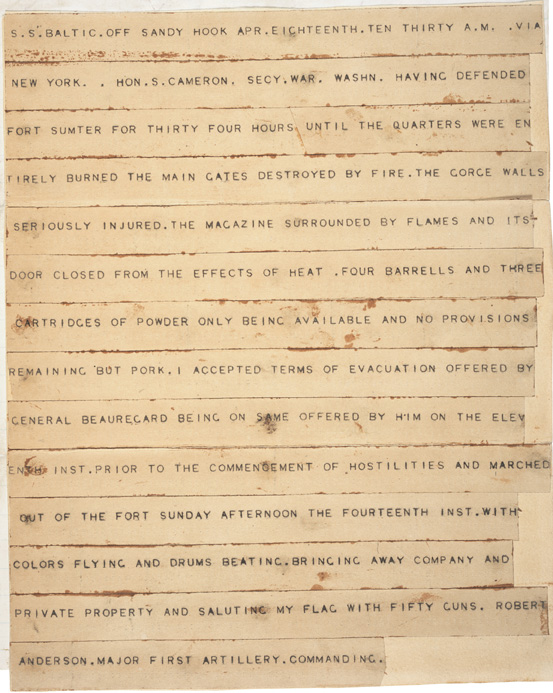Anderson, Robert (1805-1871), was a Union general during the American Civil War (1861-1865). He commanded the Union troops at Fort Sumter, South Carolina, the site of the first shots fired during the war.
Anderson was born on June 14, 1805, near Louisville, Kentucky. In 1825, he graduated from the United States Military Academy at West Point, New York. Anderson fought in the Black Hawk War (1832), the Second Seminole War (1835-1842), and the Mexican War (1846-1848). He also served as an artillery instructor at the Military Academy. In 1857, Anderson was promoted to the rank of major, his rank when the Civil War began. Even though Anderson was a Southerner and a former slaveholder, he remained loyal to the Union.
In November 1860, Anderson took command of the three forts—Johnson, Moultrie, and Sumter—in the harbor of Charleston, South Carolina. On Dec. 20, 1860, South Carolina became the first state to secede (withdraw) from the Union. Anderson originally was headquartered at Fort Moultrie, which he quickly realized could not be defended. On Dec. 26, 1860, he moved his troops to Fort Sumter. The Confederates did not allow the Union to send supplies to the fort.
In April 1861, President Abraham Lincoln informed the Confederacy that he intended to send food supplies to Fort Sumter. The Confederates demanded that Anderson surrender the fort before it could be supplied. Anderson refused, and on April 12, 1861, the Confederates fired on Fort Sumter. On April 13, Anderson surrendered, and on the next day, the Union troops evacuated the fort. The North considered Anderson a hero for defending Fort Sumter.

In May 1861, Anderson was promoted to general. After Fort Sumter, he recruited and commanded troops in Kentucky. In October 1861, Anderson was relieved from field command due to poor health. About two years later, he retired from the Army. On April 14, 1865, with the Union victory in the Civil War nearly complete, Anderson returned to Fort Sumter to raise the same flag that had been taken down four years earlier.
After the war, Anderson and his family moved to Europe. On Oct. 26, 1871, he died in Nice, France.
See also Civil War, American ; Fort Sumter .
